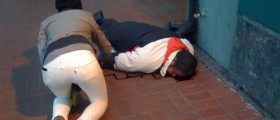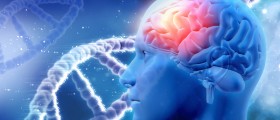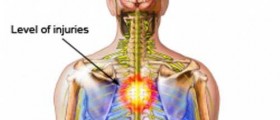Myoclonic seizure is a type of generalized seizure characterized by involuntary muscle contractions that may last for a second or two. However, sometimes several seizures may occur within a short time. Let’s find out more about myoclonic seizures and its causes and symptoms.
Myoclonic Seizures Overview
Myoclonic seizures are brief jerks of muscles that may occur on one or both sides of the body. This jerking or twitching is most commonly experienced in one foot or one arm. Because of that, myoclonic seizure is often confused with clumsiness. However, recurring myoclonic seizures can indicate underlying medical condition such as epilepsy or other neurological disorders.
On the other hand, myoclonic seizures may also occur in healthy people. People often experience myoclonic seizure of the diaphragm muscle,that is, hiccups. Sudden body jerk in sleep is also common. These myoclonic seizures are no cause for alarm and do not require treatment.
Myoclonic seizures can be a symptom of different epilepsy syndromes and may manifest in different ways. Myoclonic seizure disorder is associated with following syndromes:
Juvenile Myoclonic Epilepsy
Myoclonic seizures can be caused by juvenile myoclonic epilepsy that is common form of epilepsy in children. The seizures generally begin around puberty or in early adulthood. They commonly involve the neck, shoulders and upper arms. These seizures can be controlled with life long medication treatment.
Lennox-Gastaut Syndrome
Lennox-Gastaut syndrome is a rare epilepsy disorder in children accompanied with myoclonic and other types of seizures. Onset of myoclonic seizures is in early childhood and they are difficult to control. In this syndrome, the myoclonic seizures affect the neck, shoulders, upper arms and often the face.
Progressive Myoclonic Epilepsy
This epilepsy syndrome is characterized by combination of myoclonic seizures and tonic-clonic seizures. Since this form of epilepsy is progressive it can not be successfully treated.
What are Causes of Myoclonic Seizure Disorder?
Myoclonic seizures originate in the brain and may involve both sides of the organ. It may occur due to number of reasons such as infection, injury to the head or spinal cord, stroke and sleep disorders. Brain tumors, kidney failure, liver failure and lipid storage disease can also cause myoclonic seizures. The seizures may also occur as a side effect of certain medications and chemicals. Furthermore, prolonged deprivation of oxygen to the brain, general anesthesia and diseases like multiple sclerosis, Parkinson’s disease, Alzheimer’s disease and lupus can be accompanied with myoclonic seizures.
Symptoms of Myoclonic Seizures
Symptoms of myoclonic seizures usually occur in the morning after getting up. In children, myoclonic seizures may include one or more muscle jerks in the shoulders, arms and whole body. The seizure may cause a child to drop things from hands but sometimes the event is not visible.
Symptoms of myoclonic seizures in adults are similar to those in children. However, if the symptoms are severe the seizures may interfere with the patient’s ability to talk, eat, walk and sleep. Abnormal body movements and twitching are also common symptoms of myoclonic seizures in adults.

















Your thoughts on this
Loading...